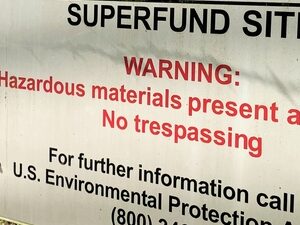Newark, NJ – A federal magistrate judge has granted the United States government permission to amend its legal response in a high-profile Superfund cleanup case involving decades-old chemical contamination at a Linden, New Jersey site.
In an opinion and order issued this week, Magistrate Judge James B. Clark approved the Justice Department’s request to revise its answer to counterclaims filed by G-I Holdings Inc., a corporate successor to the former General Aniline & Film Corporation (GAF). The ruling clears the way for the government to strengthen its position as it seeks to recover millions of dollars in cleanup costs.
The case, filed in June 2022, targets ISP Environmental Services Inc. (IES) and G-I Holdings, both considered successors to GAF, which operated a chlor-alkali manufacturing plant at the Linden site from the 1950s until 1971. Federal officials allege that GAF discharged large amounts of mercury-laden wastewater and sludge into an on-site lagoon, contaminating soil, waterways, and ultimately the South Branch Creek, a tributary of the Arthur Kill River.
The Environmental Protection Agency began investigating the site in the mid-1990s, placing it on the National Priorities List of the nation’s most hazardous waste locations in 1998. Sampling confirmed mercury contamination in surrounding soil and surface water.
Defendants have challenged aspects of the government’s claims, prompting the counterclaim and the government’s motion to amend its response. The judge determined that allowing the amendment would not prejudice the defendants and would help clarify the scope of the litigation.
The case remains ongoing in the U.S. District Court for the District of New Jersey before Judge Jamelka N. Underhill.
Key Points
- Federal judge granted U.S. request to amend its response in a Linden, NJ Superfund case.
- The case seeks recovery of cleanup costs tied to mercury pollution from a former GAF chemical plant.
- EPA placed the site on the National Priorities List in 1998 after investigations revealed widespread contamination.
The ruling marks another step in the long-running legal fight over who should pay for the toxic legacy of Linden’s industrial past.
